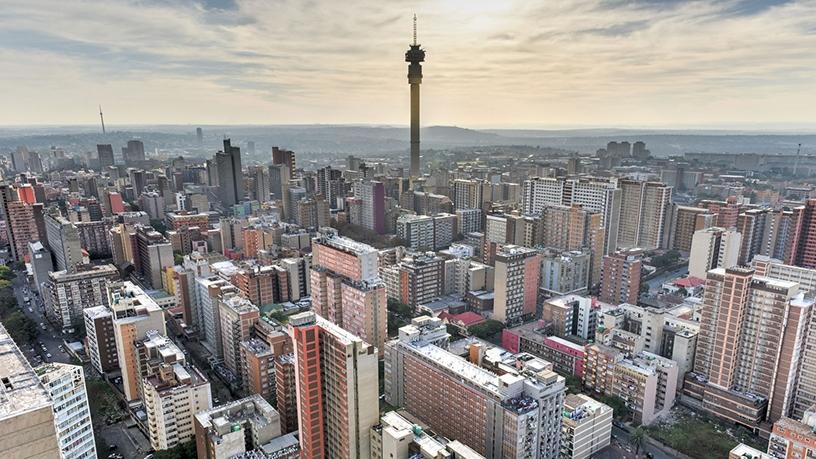
The State IT Agency (SITA) says the tender for phase two of the Gauteng broadband network (GBN) has been awarded to Altech Alcom Matomo at a cost of R2.8 billion.
The new contract is in addition to the R1.7 billion already spent by the Gauteng Department of E-government, pushing the project cost up to R4.5 billion.
Broadband has been identified as a key foundation in the province's e-government strategy, which aims to modernise government operations and service delivery through technology. The GBN project falls under the stewardship of finance MEC and head of the e-government department, Barbara Creecy.
The contract for phase one of the GBN was awarded to Altech Alcom Matomo, at a price of R1.2 billion, in 2013, for the building of a core network and connection of 450 sites.
Nevertheless, the cost of the phase two contract did not feature in Creecy's projected GBN budget. Speaking earlier this year, the MEC announced the planned budget allocation for the GBN rollout amounted to R1 billion over the next three financial years. Creecy added that this budget catered primarily for operating expenses for the existing sites and had limited expenditure for building connectivity for additional sites.
"The reason for this is that due to the expiry of the GBN phase one contract and a nine-month delay in SITA appointing contractors for GBN phase two, the department underspent R100 million on its 2017/18 budget and consequently received no new money for infrastructure in the 2018/19 financial year."
Finding the funds
With a mandate to complete the broadband network, inclusive of all government buildings, schools, health facilities and hospitals by 2021, Gauteng's e-government department is now under pressure to pin down the resources to fund phase two.
Creecy says one way which she will find the additional money is through reprioritising ICT expenditure in departmental budgets.
"In 2017/18, the department conducted an audit of the ICT environment throughout the Gauteng Provincial Government to identify areas of duplication in the ICT services, revealing duplication in 11 areas. This audit is complete and discussions are under way with all Gauteng departments to eliminate these duplications and reprioritise finances."
The department will also discuss budget availability and rollout time frames with Provincial Treasury in the budget adjustment process in October, she says.
"This deadline has been negatively affected by the SITA delays in appointing a GBN phase two contractor. We are currently discussing whether we can make up the lost time, or whether we should extend the deadline to 2022."
Upping the scope
The sharp increase in cost appears to be a result of expansions to the scope of the project.
"The original scope of the work only included wide area network and not local area network or voice over IP," says Creecy.
Nevertheless, through internal savings, the department managed to build eight core nodes and connected 1 181 sites. The department also managed to rollout GBN VOIP on 150 sites, yielding savings of up to 60% on telephony costs.
"It became clear during the first phase that departments did not implement LAN connectivity after the Department of E-government introduced broadband. To enable departmental usage of the broadband network, e-gov started to use its own resources to provide LAN connectivity in other departments," explains Creecy.
Phase two encapsulates:
- Wide area network (WAN)
- Implement WAN connectivity for phase two sites
- Provide last mile connectivity with dedicated manholes for phase two sites
- Provide WAN management, maintenance and support for phase two sites
- Provide WAN management, maintenance and support for phase one sites
- Local area network (LAN)
- Implement LAN connectivity for sites that do not have LAN
- Provide LAN maintenance and support
- Core network
- The current core must be upgraded to accommodate the additional phase two sites
- Upgrade the current core devices to handle 100Gbps
- Upgrade current core bandwidth to 100Gbps
- Network management service
- Provide WAN network management services
- Training
- Provide original equipment manufacturer certified training
For its part, SITA says R2.8 billion was the "lowest price from the market for the specifications made available to the market".
Despite publishing a notification of the awarded contract in the National Tender Bulletin, and a statement from the province in confirmation, SITA says while the negotiations are at an advanced stage, they are not yet finalised.
"This programme is critical and aligned to the modernisation of government and improved service delivery; and SITA is committed to working to ensure that throughout the country, blueprints for development that focus on improved integration and service delivery have top priority. Network access and connectivity are key to citizens' expectations and multi-layered development," it concludes.
Share